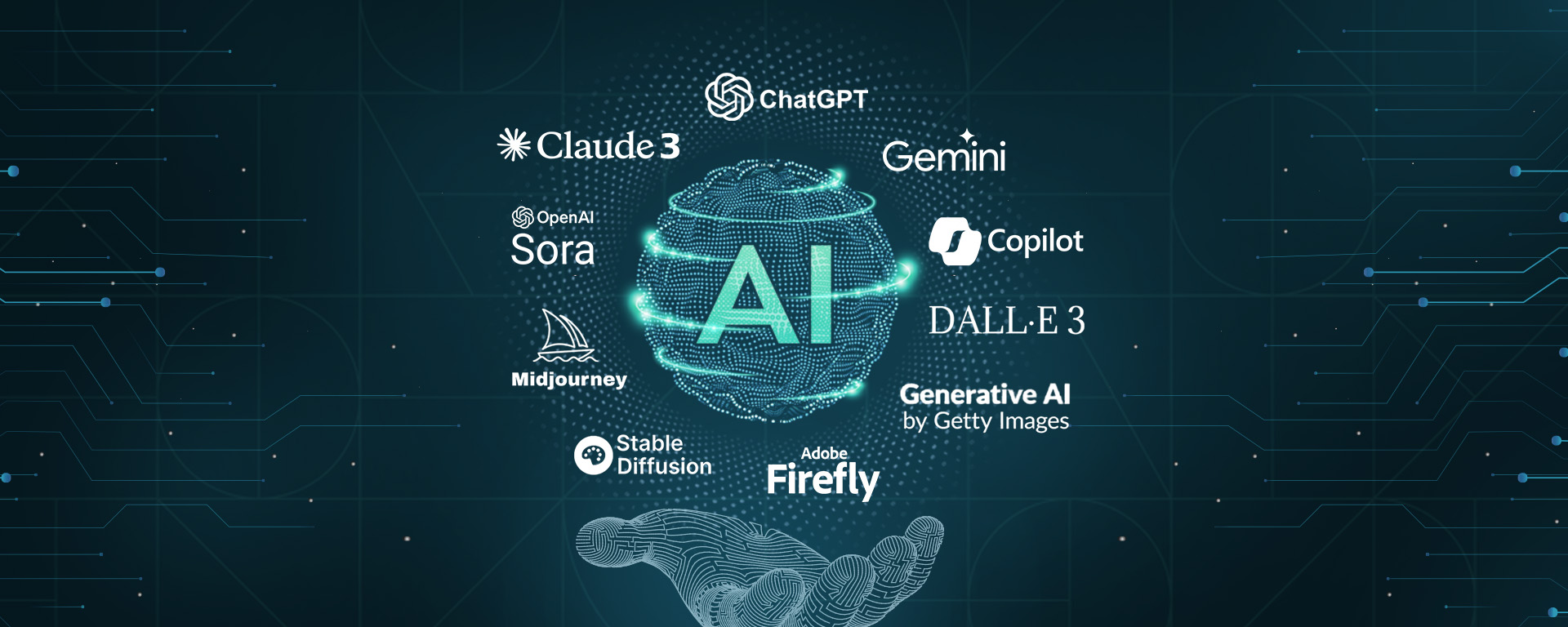Generative Artificial Intelligence (AI) has emerged as a game-changer for small and medium-sized enterprise (SME) entrepreneurs, reshaping our interaction with digital technology and opening up new realms of creativity, productivity and efficiency.
Unlike traditional AI, which operates based on learned data, Generative AI takes it a step further, creating entirely new content with the complexity and nuances of its inputs.
Let’s delve into the core of Generative AI, exploring its mechanisms, applications, and the transformative impact it holds for SMEs across different sectors.
The Science of Digital Creation
Generative AI employs algorithms to discern patterns, styles, and structures within data. This learning process enables it to produce various forms of content such as images, text, music, videos, and code.
For instance, imagine teaching a computer about different product designs by showing it a myriad of examples from your industry.
Generative AI can then analyse these designs and generate new ones that capture the essence of your brand’s style, each unique yet familiar.
Generative AI Application in Industries:
AI for Content and Design
If you’re a business owner who is struggling to create compelling social media posts, articles, or product descriptions and designs, Generative AI can help you produce high-quality, original content that connects with your desired audience.
By analysing your current content and brand tone, Generative AI can generate fresh pieces that fit seamlessly with your style and messaging.
Content creation
- Claude 3
- ChatGPT
- Jasper
- Gemini
- Copilot
By leveraging AI, designers can create captivating marketing materials, product designs, custom graphics, logos, and product visualisations that effectively capture the essence of a brand.
Image creation
- Midjourney
- DALL·E 3
- Stable Diffusion
- Generative AI by Getty
- Adobe Firefly
- Copilot
AI for Entertainment
Generative AI’s impact is profound in the entertainment industry, with its ability to generate lifelike animations and virtual characters.
Projects like OpenAI’s Sora have the potential for AI to create characters that can interact in real-time, offering personalised experiences in gaming, virtual reality, and interactive media.
AI for Healthcare
Perhaps one of the most significant applications of Generative AI is in healthcare, particularly for businesses involved in medical research and diagnostics. By generating synthetic medical data, it facilitates research without compromising patient privacy.
Businesses can use AI to simulate medical conditions for training purposes or to refine diagnostic algorithms, driving innovation in the healthcare sector.
Examples:
- Medical Simulation: Develop AI-driven medical simulators for training healthcare professionals, providing realistic scenarios to enhance skills and knowledge.
- Diagnostic Support: Utilise Generative AI to analyse medical imaging data and assist healthcare providers in accurate diagnosis and treatment planning.
AI for Finance
In the finance industry, Generative AI powers advanced analytics, fraud detection, and personalised customer services.
SMEs can leverage AI-generated insights to predict market trends, assess risks, and tailor financial services to individual customer needs, fostering efficiency and innovation.
Examples:
- Risk Assessment: Use AI to analyse financial data and identify potential risks, enabling businesses to make informed decisions and mitigate financial losses.
- Customer Personalisation: Implement AI-driven personalisation strategies to offer tailored financial products and services, enhancing customer satisfaction and loyalty.
AI Ethical Dimensions and Future Perspectives
With great power comes great responsibility. As Generative AI reshapes industries, ethical considerations and the impact on jobs, privacy, and creative rights become pivotal discussions.
Balancing innovation with ethical considerations ensures that Generative AI benefits humanity while minimising potential drawbacks.
What Lies Ahead for AI
The trajectory of Generative AI points towards an increasingly integrated future where AI-assisted creation becomes commonplace, empowering SMEs to innovate and solve complex challenges.
As technology evolves, we may see more businesses finding themselves collaborating with AI partners in creative endeavours, utilising advanced simulations for problem-solving, and offering personalised AI-driven experiences to customers.
Conclusion
Generative AI is more than just a technological advancement; it’s a new canvas for creativity, a solution for pressing challenges, and a tool for innovation across industries.
By embracing this technology, you can unlock new avenues for growth, enhance your competitive edge, and position your small business for long-term success in the ever-evolving digital landscape.




